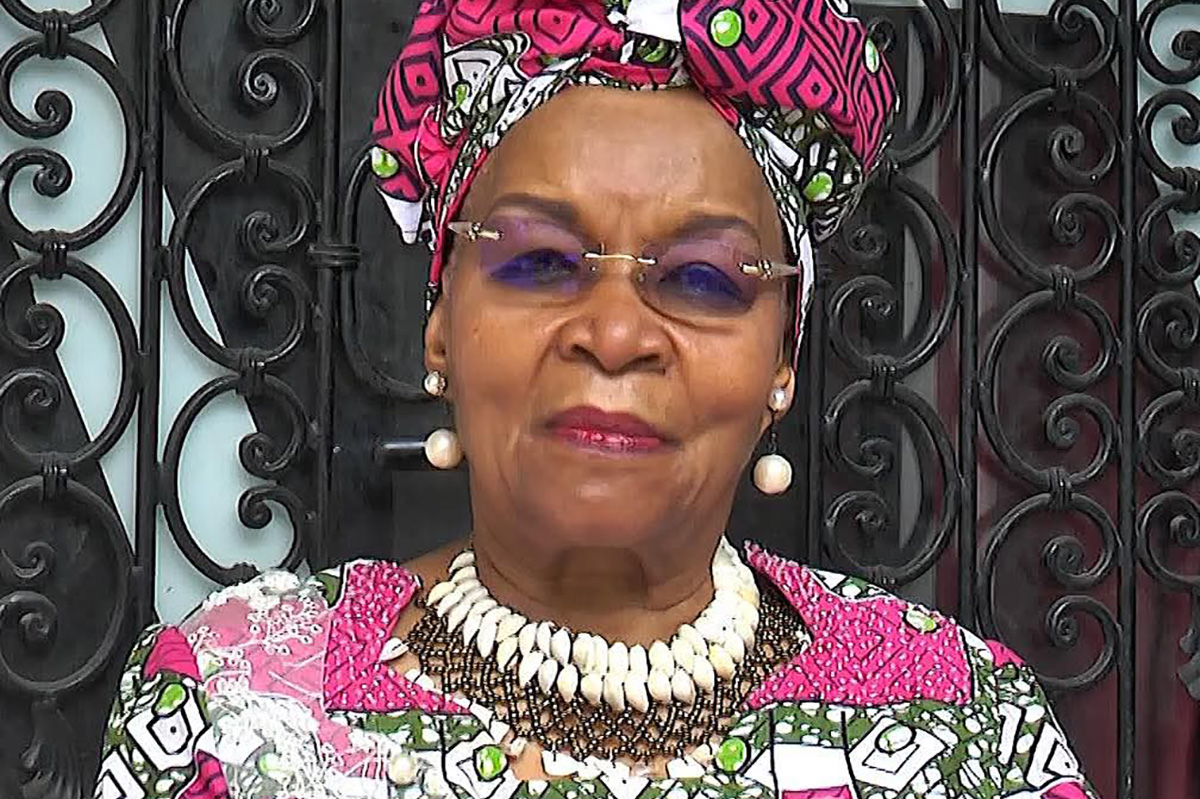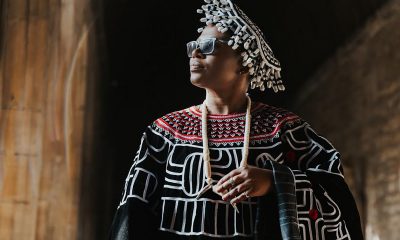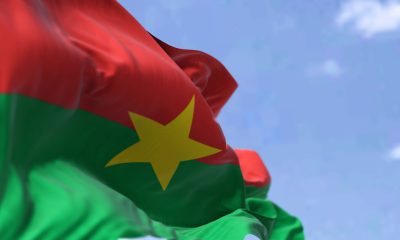Cameroon
Prominent Cameroonian activist faces terrorism charges
Alice Nkom ordered to appear before National Gendarmerie

A prominent LGBTQ activist in Cameroon is facing terrorism charges.
Alice Nkom, a human rights lawyer and board president of Réseau des Défenseurs des Droits Humains en Afrique Centrale, a group known by the acronym Redhac that translates to Human Rights Defenders Network in Central Africa, on Jan. 2 received a summons from Cameroon’s National Gendarmerie, or national military intelligence.
The summons follows a complaint that Lilian Engoulou, general coordinator of the Observatory for Societal Development, filed.
Engoulou has accused Nkom of attempting to endanger state security, financing terrorism, and funding separatist groups in the northwest and southwest regions of the country that are fighting for independence from Cameroon.
Nkom in recent months has been vocal over the human rights situation in the country, including LGBTQ rights.
Territorial Administration Minister Paul Atanga Nji last month suspended Redhac and sealed the organization’s offices for alleged illegal and exorbitant funding and lack of compliance with government regulations on how NGOs should be run.
Nkom, however, removed the seals. This action prompted authorities in Littoral province where Redhoc’s offices are located to issue the summons on Dec. 19 after she did not appear.
Nkom has described the summons as a political witch hunt, stating she doesn’t acknowledge the Observatory for Societal Development. Nkom added she broke the seals because authorities placed them illegally.
“At the beginning of the year, a new summons, this time issued by the police, at the request of the military court, with accusations of financing terrorism, following the complaint of an association that I ignore from its existence, its leaders, or even the date of its creation,” she said.
“Human rights defenders are small, fragile but courageous, against the authoritarian and totalitarian drift of a state,” added Nkom. “Like the dikes facing the rising tide of injustice, they stand there firm, despite their vulnerability. I am an advocate, a human rights defender, a humanist. Humanity cannot be divided into categories. We are one, all connected by the same dignity.”
Maurice Kamto, a fierce critic of President Paul Biya who is a lawyer and leads the opposition Cameroon Renaissance Movement political party, said Nkom should not face judicial and political harassment. Kamto offered to represent her pro bono.
“She is an eminent figure in the public life of our country,” said Kamto. “She is fighting many battles. We do not share all these battles, and it is not all her battles that are at issue today.”
Kamto further described Nkom as “an important voice in the public arena of our country.”
“It is therefore, unacceptable that she should be the object of the judicial and political harassment that the authorities are currently inflicting on her,” said Kamto. “We cannot stand by and watch this happen.”
Consensual same-sex sexual relations are criminalized under Section 347 of Cameroon’s penal code with up to five years in prison. A 2010 law states whoever uses electronic communication devices to make “a sexual proposal to a person of the same sex” faces up to two years in prison.
A number of Cameroonians in recent years have been arrested — and tortured — for engaging in same-sex sexual relations.
A Human Rights Watch report notes Cameroonian security forces between February and April 2021 arrested at least 27 people, including a child, for alleged consensual same-sex conduct or gender nonconformity. Some of those arrested were beaten.
Biya’s daughter, Brenda Biya, last year posted an image to her Instagram page of her kissing her ex-girlfriend, Layyons Valença, and saying her wish was for them to live in peace as a couple. Brenda Biya deleted the post after it sparked controversy in Cameroon.
Nkom is expected to appear before the National Gendarmerie on Jan. 14, which is also her 80th Birthday.

Cameroon
Cameroonian LGBTQ activist shares journey of resilience, healing, and authenticity
Bandy Kiki recently married her Nigerian partner

Bandy Kiki, a Cameroonian LGBTQ activist and media personality who currently lives in the U.K., has married Jenny, her Nigerian partner.
Kiki, who came out as gay in 2017, said in a March 25 post that she had become “Ijaw by marriage.”
Ijaw is a tribe in Nigeria from where Jenny originates.
“For many people, celebrating love is expected, even assumed. But for those of us in the LGBTQ+ community, it is often questioned, as though our love needs justification,” Kiki told the Washington Blade in an exclusive interview.
And hers has been a journey of resilience, healing, and authenticity.
In this exclusive interview, Kiki shares her story as a gay person growing up in a Cameroonian society that considered, and still considers gay relationships as fundamentally flawed, and patently sinful.
“Facing societal perceptions and expectations required both resilience and self-discovery,” she said.
“In the beginning, it felt like I was constantly being asked to justify my identity, my relationship, and even my joy. There were moments of doubt, isolation, and deep frustration,” Kiki told the Blade.
“Over time, I have grown more confident in who I am. I have found community, chosen family, and a sense of self that no longer depends on anyone else’s approval.”
Here are some excerpts of the conversation.
BLADE: What inspired you to take this step and celebrate your love openly, despite the prevalent social and cultural stigmas about gays in your country of origin, Cameroon?
KIKI: When I was asked why I chose to celebrate my love openly, I couldn’t help but wonder: Would I be asked that if I weren’t queer? For many people, celebrating love is expected, even assumed. But for those of us in the LGBTQ+ community, it is often questioned, as though our love needs justification.
Coming from a culture where being LGBTQ+ is still heavily stigmatized, I spent a long time feeling like I had to hide or shrink parts of myself just to be accepted. That is why marrying my partner is not just about legal rights. It is about joy, truth, and visibility. It is about showing that our love is just as real, just as deserving, and just as worth celebrating as anyone else’s. It is about healing and choosing courage over fear.
BLADE: What does this marriage mean to you personally and culturally?
KIKI: Marriage is a fundamental human right for everyone of marriageable age, regardless of their sexuality. It is not just a legal bond but the quiet vow to grow old with someone, not by the accident of time but by choice, every day. Culturally, I see marriage as the coming together of families or the beginning of one.
BLADE: How did your love story with your partner begin?
KIKI: Our love story began in the most modern way. We met online. I was not expecting much, but from our very first conversation, something just felt easy. She quickly picked up on one thing about me. I talk about food a lot. I mean, a lot. Especially about how much I had been craving Waakye, one of my favorite Ghanaian meals.
Immediately after our first date at a restaurant, which went incredibly well, she asked me to come to her house for a surprise. Naturally, my mind wandered to certain possibilities. But when I got there, she brought out a big bag filled with takeaway bowls of Waakye she had ordered, just because I had mentioned it in passing.
In that moment, I knew this was something special. This was not just about food. It was about being heard. It was about someone who listened to what I said and cared enough to remember it. That simple gesture told me everything. She paid attention. She took action. She showed love not just in words but in thoughtful details.
That was the moment she had my full attention. And honestly, she has had it ever since.
BLADE: Describe your life at home?
KIKI: We are both women, and our marriage does not operate on traditional gender roles. There is no “husband” or “wife” in lesbian relationships, regardless of how either partner presents herself in terms of fashion or style. In our marriage, we are equal partners who show up for each other in the ways that feel right for us. I love food and I am the better cook, so I do the cooking. My wife handles the cleaning, which works perfectly because I genuinely dislike it.
BLADE: At what point in your life did it occur to you that you were more inclined to same-sex relationships, and given Cameroon’s aversion to homosexuality, how did you manage to date fellow women in those early days, and can you speak to some of the experiences you had?
KIKI: In my teens, when friends were thinking about boys, I was thinking about girls. When I finally had the courage to seek love, it was all about “understanding and response.” I would do nice things for them, hoping they would see me as more than just a friend and maybe even feel the same way about me. That way, there was always deniability if they wanted to out me. It cost me a lot in time, energy, and emotion, but in an environment like Cameroon, queer people develop different tools to cope. For the safety of those back home, I will not go into more or other details.
BLADE: How has your journey been in navigating societal perceptions and expectations?
KIKI: Honestly, it was incredibly challenging, especially right after I came out. But it has also been completely worth it. Staying in the closet might have been easier, but it would have cost me my mental health and the chance to live my truth.
Facing societal perceptions and expectations required both resilience and self-discovery. In the beginning, it felt like I was constantly being asked to justify my identity, my relationship, and even my joy. There were moments of doubt, isolation, and deep frustration.
Over time, I have grown more confident in who I am. I have found community, chosen family, and a sense of self that no longer depends on anyone else’s approval. I now accept that not everyone will understand my path, and that is okay. What matters most is that I do.
BLADE: How do you hope your story will impact others in similar situations?
KIKI: I hope my story offers comfort to those who feel alone or unseen. I want others in similar situations to know that their feelings are valid and that they are not the only ones navigating this journey. Even in difficult environments, there is strength in quiet resilience and there is hope in knowing that being true to yourself, even in small ways, is powerful. If someone can see themselves in my story and feel a little more understood, then sharing it will have been worth it.
BLADE: What advice would you give to individuals who may be struggling with acceptance or self-expression?
KIKI: Take your time. Your safety and well-being matter just as much as your truth. Self-acceptance is not a race. It is a process, and it is okay to go at your own pace. Seek out safe spaces, even if they are few and far between, and surround yourself with people who see and respect you. When you are ready, express yourself in ways that feel right for you, no matter how small. There is no one way to be you, and there is no shame in surviving.
Killian Ngala is a freelance journalist in Yaoundé, Cameroon.
-

 District of Columbia3 days ago
District of Columbia3 days agoFinal push to raise funds, fill D.C. hotels as WorldPride nears
-

 District of Columbia3 days ago
District of Columbia3 days agoReenactment of 1965 gay rights protest at White House set for April 17
-

 Maryland3 days ago
Maryland3 days agoFreeState Justice: Transgender activist ‘hijacked’ Moore’s Transgender Day of Visibility event
-

 Hungary3 days ago
Hungary3 days agoHungarian MPs amend constitution to ban public LGBTQ events











